Three drone strikes in a week: Is Ukraine’s mobilization at risk?
 Photo: a rescuer at the scene of the attacks in Poltava on July 3, where recruitment center was targeted (t.me/dsns_telegram)
Photo: a rescuer at the scene of the attacks in Poltava on July 3, where recruitment center was targeted (t.me/dsns_telegram)
The strike on the recruitment center in Kremenchuk marks the third similar attack on Ukrainian military enlistment offices in one week, signaling a worrying new trend in the enemy’s terrorist tactics.
RBC-Ukraine explains why Russia is targeting recruitment centers and why these attempts are unlikely to succeed.
Key questions:
-
What is known about the strikes on recruitment centers?
-
What have been the consequences of the Shahed drone attacks?
-
Can the enemy disrupt Ukraine’s mobilization?
-
How might the strikes on recruitment centers affect mobilization in Ukraine?
-
Which three recruitment centers have already been targeted by Russia?
On the morning of June 30, Russian forces attacked Kryvyi Rih with Shahed drones. According to Oleksandr Vilkul, head of the local Defense Council, three people were injured. Photos also surfaced online showing damage to the roof of the Saksahanskyi territorial recruitment center.

Photo: damaged recruitment center in Kryvyi Rih (t.me/dnepr_realno)
Later, the Ground Forces reported that the strike hit near the recruitment center building. Losses were avoided because staff were in shelter during the alert. However, civilians near the attack site were injured.
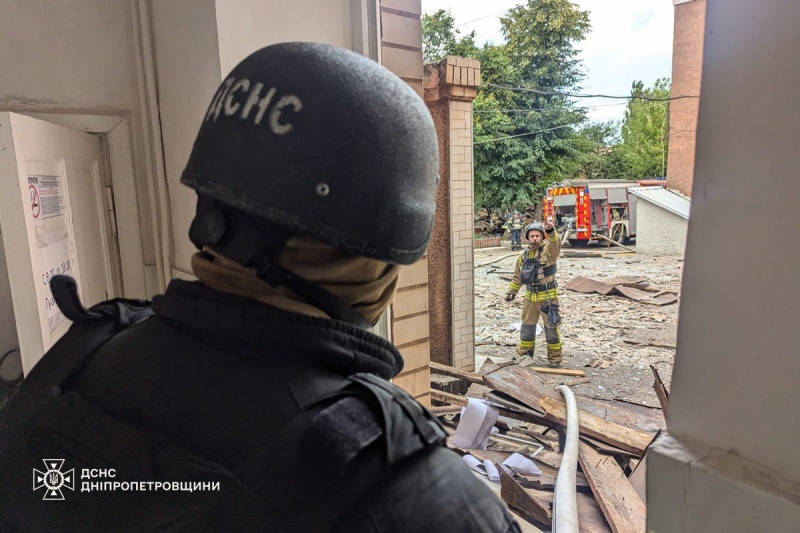
Photo: consequences of the strike on Kryvyi Rih on June 30 (t.me/dsns_telegram)
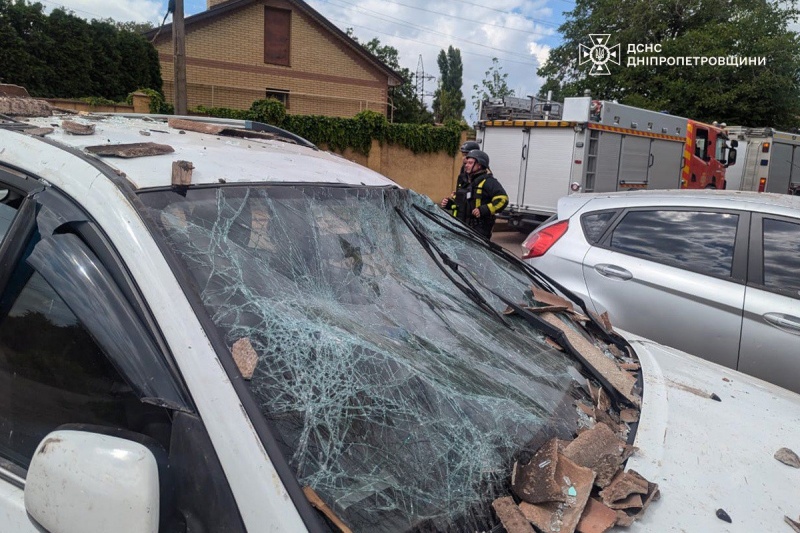
Photo: consequences of the strike on Kryvyi Rih on June 30 (t.me/dsns_telegram)
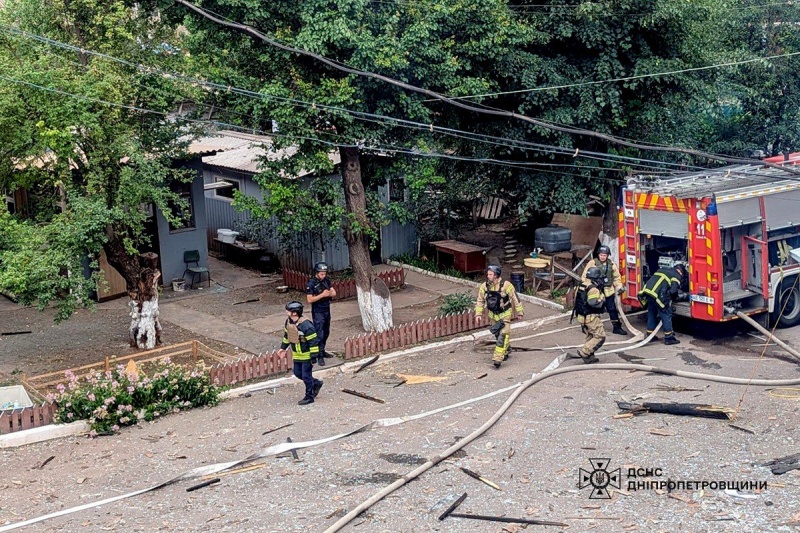
Photo: consequences of the strike on Kryvyi Rih on June 30 (t.me/dsns_telegram)
On the morning of July 3, Shahed drones struck two sites in Poltava, causing tragic consequences. One hit targeted the city recruitment center, and the other struck the regional recruitment center. Both military facilities are located in densely populated urban areas.
A private house caught fire near the Poltava regional recruitment center due to the strike. Civilians were injured and killed as a result. Additionally, two recruitment center servicemen and two Ukrainian Armed Forces soldiers were reported wounded.
Below is video footage of the strike on the recruitment center in Poltava.
In total, nearly 60 people sought medical help following the strikes on Poltava, with three confirmed dead. Among the victims was Oleksandr Lyashyk, a graduate student at Poltava State Agrarian University. The second was Stanislav Popovych, a demobilized soldier. The third victim was a woman whose life doctors fought to save until the very end.
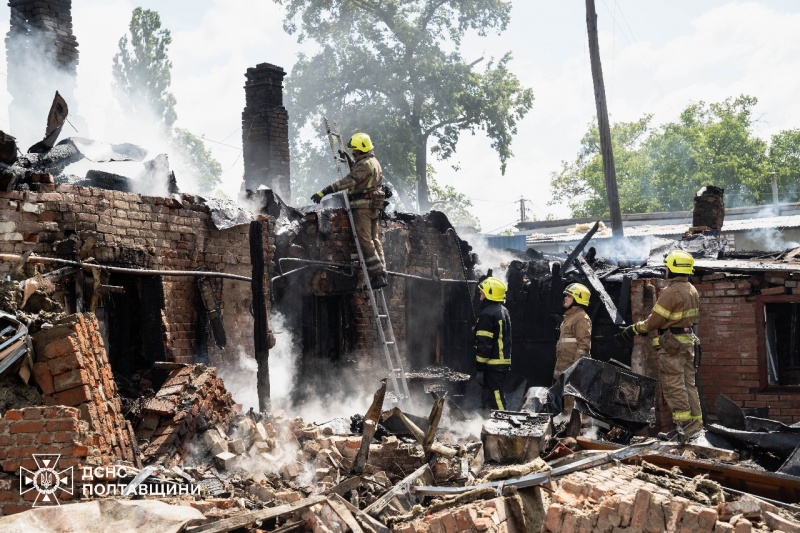
Photo: consequences of the arrivals in Poltava on July 3 (facebook.com/DSNSPOLTAVA)
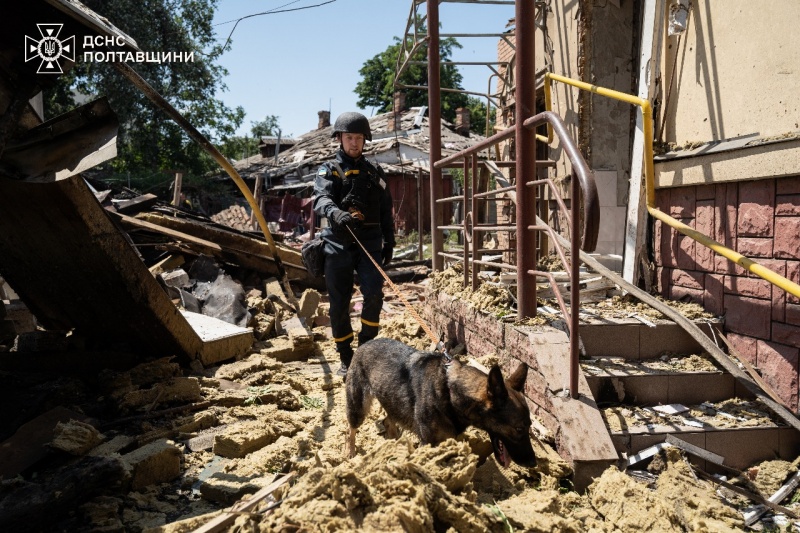
Photo: consequences of the arrivals in Poltava on July 3 (facebook.com/DSNSPOLTAVA)
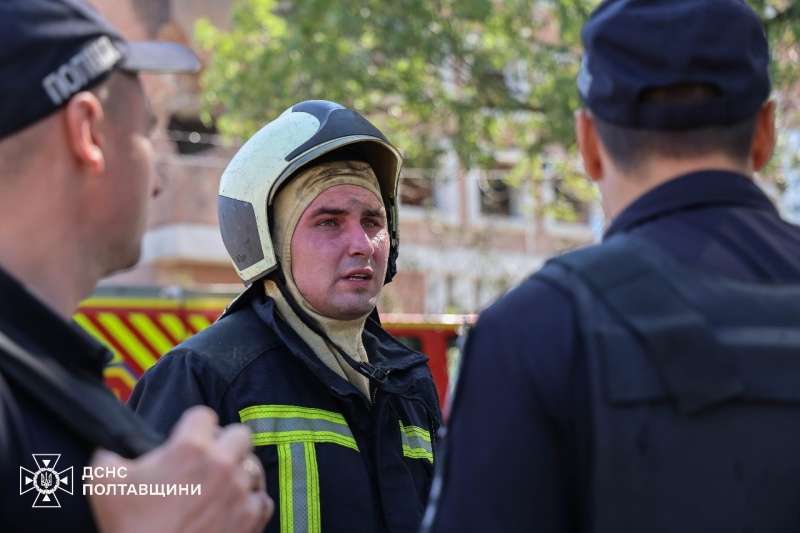
Photo: consequences of the arrivals in Poltava on July 3 (facebook.com/DSNSPOLTAVA)
Today, the enemy struck a recruitment center in Kremenchuk, Poltava region, with a Shahed drone. According to preliminary reports, the drone hit the recruitment office building and a nearby residential building. One person was injured, and 14 houses and five vehicles were damaged.
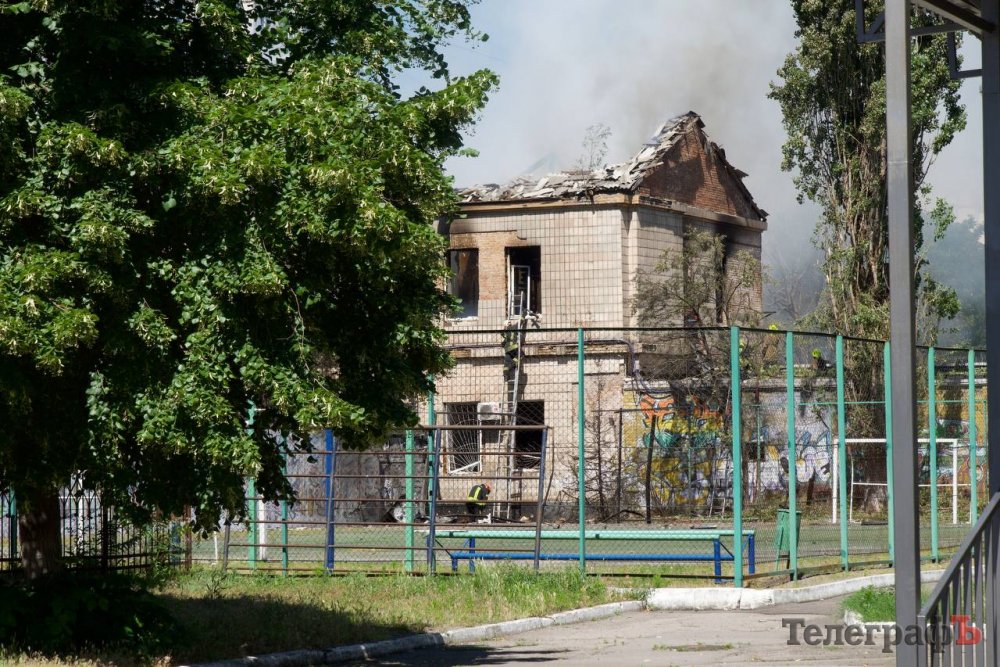
Photo: aftermath of the strike on the recruitment center in Kremenchuk, July 6 (telegraf.in.ua)
Why the enemy is targeting Ukrainian recruitment centers
The reason is clear and directly tied to mobilization, said Oleksandr Musiienko, a serviceman of the Territorial Defense Forces and military expert, in a comment to RBC-Ukraine.
"Despite their propaganda claiming that Ukraine supposedly no longer has the strength to fight, they are trying to disrupt our mobilization efforts. The goal of the strikes is to prevent us from fully conducting mobilization activities," he explained.
Earlier this week, the Ground Forces also stated that the increase in such attacks is aimed at undermining mobilization. However, they stressed that the process cannot be stopped.
This was confirmed today by Roman Istomin, spokesperson for the Poltava Regional Territorial Recruitment and Social Support Center, in a comment to Suspilne. According to him, despite the attacks, mobilization in the region continues as usual. Any delays are temporary and mainly related to individual social issues. The records of conscripts and reservists are largely duplicated in the electronic register Oberih.
Today, Ground Forces spokesperson Vitalii Sarantsev told RBC-Ukraine that the enemy fears the steady flow of new servicemembers into the Ukrainian army.
"It’s worth recalling that this Russian campaign began earlier — with terrorist attacks on recruitment centers, including bomb threats and attempts to bring explosive devices into the buildings," he noted.
Will drone attacks on recruitment centers continue, and could they affect mobilization?
According to Vitalii Sarantsev, the strikes on recruitment centers in Kryvyi Rih, Poltava, and Kremenchuk are part of an ongoing terrorist campaign.
"Given this, we expect that such attacks may continue. On our end, we will do everything possible to protect the servicemembers working in the recruitment and support centers, as well as the civilians who come to these facilities," the Ground Forces spokesperson told the outlet.
The fact that the Kremenchuk recruitment center became the third such target of a Shahed drone in a single week suggests a potential pattern, says military expert Oleksandr Musiienko.
"Unfortunately, these attacks may continue. I believe our forces will take measures to strengthen protection and minimize the impact on recruitment centers," the expert emphasized.
He also highlighted Ukraine’s ongoing digitalization campaign, which includes moving military records into a digital format. In his view, these attacks could accelerate the transition.
"We are in the middle of a digitalization effort. So the enemy’s expectation that everything is still kept on paper and can be destroyed is pointless. Digitalization is especially critical now. I hope this process speeds up, as it would further minimize the impact of such attacks," Musiienko added.
Sources: Ground Forces of the Armed Forces of Ukraine, State Emergency Service, Suspilne publication, and exclusive comments by Ground Forces spokesperson Vitalii Sarantsev and Territorial Defense Forces serviceman and military expert Oleksandr Musiienko for RBC-Ukraine.

